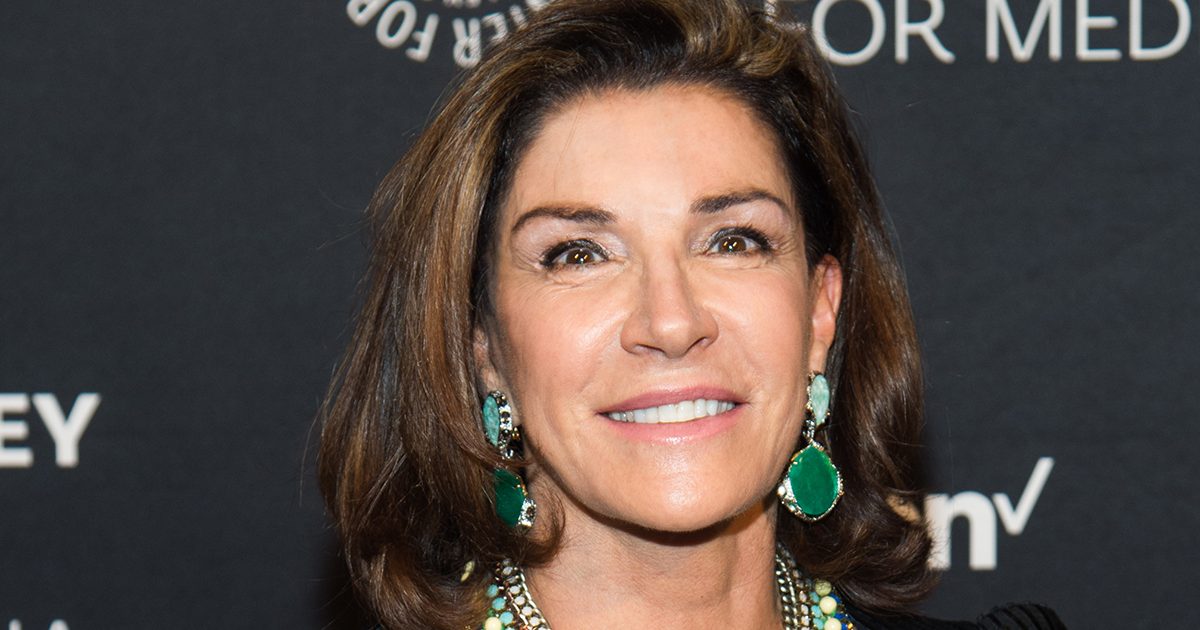The Importance of Mammograms
- Hilary Farr, co-host of Love It or List It, is opening up for the first time about her battle with breast cancer.
- Her battle with breast cancer began in 2012; she had three lumpectomy procedures through 2015 and is now considered to be in remission.
- Her growths were caught with mammogram technology; it is very important for women to get a mammogram every year, especially if you have not yet gone through menopause.
"Fear of breast cancer stops a lot of women from getting checked," Farr, now 70, tells People. "But as terrifying as it is, you face it." She adds that coping with the disease alone is a mistake she made, and does not want others to make as well.
Read MoreHilary Farr's Breast Cancer Battle
The year was 2012 almost a decade ago when Farr went to the doctor for a routine mammogram. (The U.S. Centers for Disease Control and Prevention recommends that women begin getting regular mammograms starting at age 40.) During the appointment, a lump was found. That can definitely be a scary moment, especially when you have surgery immediately after. The surgery Hilary Farr had is called a lumpectomy, which is a surgery to remove a cancer or abnormal tissue from the breast. It is also known as breast-conserving surgery because, unlike mastectomy, only the tumor and some of the surrounding tissue is removed, according to SurvivorNet expert Dr. Sarah Cate, a breast surgeon at Mount Sinai. The surgery typically takes about an hour and is an outpatient procedure. This means a patient will be able to go home the same day as the procedure.Lab results of her lumpectomy revealed that Farr's tumor was just precancerous. "I felt so much relief," she tells People. "I moved on."
However, that was only the beginning of her battle with breast cancer. Two years later, in 2014, another mammogram revealed that she had invasive breast cancer, which is the type of breast cancer that can spread to other areas of the body.
Her invasive breast cancer diagnosis prompted a second lumpectomy procedure. "I was signed off by the medical oncologist saying, 'You're done. You're fine. Off you go,'" Farr says.
But again, it was false hope for Farr. About two months after the second lumpectomy, she found out that she was supposed to receive radiation to destroy any remaining cancer cells as part of her treatment regimen. However, to Farr's shock, she was incorrectly told by a medical oncologist that radiation was not necessary for treating her cancer.
"I was terrified, because I knew I had a very small window," she says.
She also felt anger toward her doctor. "I felt absolute fury that someone could be so flippantly wrong," she says. "I could have been dead."
Should I Have a Lumpectomy or Mastectomy?
It was March 2015 before she finally received the radiation she needed to destroy any remaining cancer cells in her body. She went through a 28-day course and thought she was in the clear. But yet again, she was not.
Seven months later, toward the end of 2015, another growth was found in her breast. Hilary Farr had yet another lumpectomy her third. The growth was again considered precancerous. She is now in remission with no evidence of disease.
The Importance of Mammograms
Dr. Connie Lehman, director of the breast imaging clinic at Mass General Hospital in Boston, tells SurvivorNet that it is very important for women to get a mammogram every year, especially if you have not yet gone through menopause.
When Should I Get a Mammogram?
"We know that cancers grow more rapidly in our younger patients, and having that annual mammogram can be lifesaving," Dr. Lehman says. "After menopause, it may be perfectly acceptable to reduce that frequency to every two years."
"But what I'm most concerned about is the women who haven't been in for a mammogram for two, three, or four years, those women that have never had a mammogram," she adds. "We all agree regular screening mammography saves lives."
"I want to be completely clear: If you are between 50 and 74 and you have not had a mammogram in the last two years, you are overdue," Dr. Lehman says. "Please get a mammogram."
If you do receive a breast cancer diagnosis, it’s important to remember the role of the physician in guiding your care.
“I think it’s really important that we as physicians understand our role, and that patients understand that they’re in charge of their care and we are their navigators,” Dr. Ann Partridge, a breast cancer specialist at Dana Farber Cancer Institute, previously told SurvivorNet. ” Now, of course the average doctor's gonna know more than the average patient about the disease that you’re treating breast cancer or non-invasive breast cancer but we really need it, to make it our jobs to help explain to the patient what the best option is, as you see it in your eyes, and what the options are, but then help the patient figure out what fits best for her.”
Learn more about SurvivorNet's rigorous medical review process.


